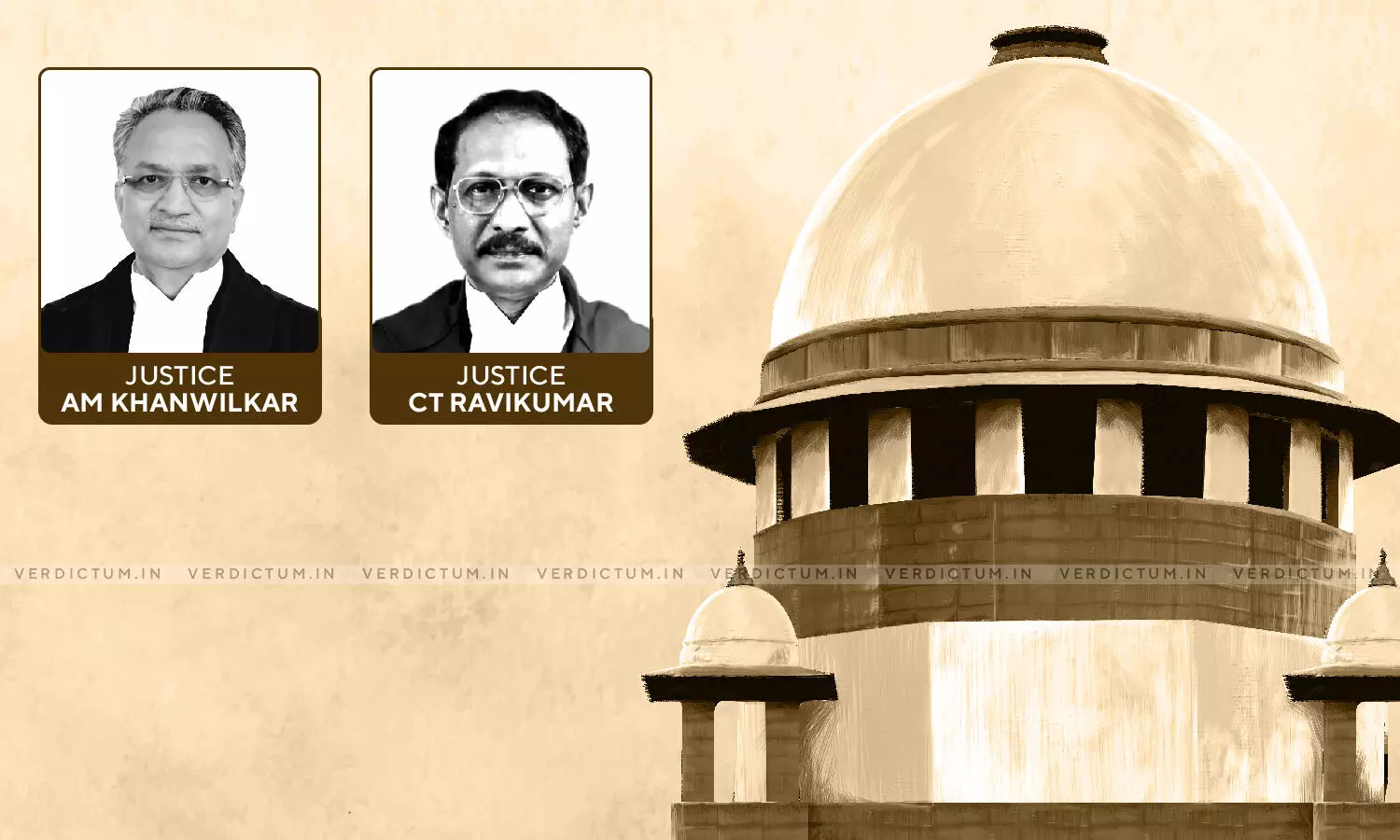
Section 14B (1) Of MVP Act - No Appeal Would Lie Against Order Of SEC Or Its Delegatee Refusing To Disqualify Sarpanch – Supreme Court
 |
|A two-judge Bench of Justice AM Khanwilkar and Justice CT Ravikumar has held that no remedy of appeal would lie against the order of the State Election Commission (SEC) or its delegatee – the Collector under Section 14B (1) Maharashtra Village Panchayats Act, 1959, rejecting the complaint or to drop proceedings for a declaration of a Sarpanch/Member having incurred disqualification.
Counsel Mr. Sudhanshu S. Choudhari appeared for the Appellants, while Counsel Mr. Nishant R. Katneshwarkar appeared for Respondent No. 2 before the Apex Court.
An appeal was preferred before the Supreme Court assailing the judgment of Bombay High Court which had dismissed the Writ Petitions of the Appellants and affirmed the order of disqualification passed by the Divisional Commissioner against the Appellants. The Divisional Commissioner had declared the Appellants as disqualified and ineligible to remain as Gram Panchayat Sarpanch/Member.
In this case, the Appellants had contested elections for electing a new Panchayat and were elected as a Sarpanch and Member of the village Panchayat. The Respondents had filed Dispute Applications before the Collector and sought a declaration under Section 14B (1) that the Appellants stood disqualified for not submitting the election expenses within the stipulated time. The Collector had however rejected both the applications.
The main contention of the Respondents before the HC was the jurisdiction of the Divisional Commissioner to entertain the appeals as the 1959 Act does not provide for an appeal against the order passed by the Collector under Section 14B (1) in rejecting the application for declaring the incumbent member as disqualified.
Further, it was argued that the remedy provided for consequent to the decision of the Collector before the Divisional Commissioner is limited to removing the disqualification or reducing the period of disqualification.
The Apex Court noted that no appeal is provided against the order of the Collector or of the State Election Commission refusing to disqualify the Sarpanch/Member under Section 14B (1). Further, in this context, the Court observed –
"Similarly, no appeal is provided even against the order of the Divisional Commissioner (or of State Election Commission) under Section 14B(2). A limited window against the order under Section 14B(1) passed by the Collector (or State Election Commission itself) declaring the Sarpanch/Member of a Panchayat as disqualified, is kept open before the Divisional Commissioner (or the State Election Commissioner, if the order under Section 14B(1) is or were to be passed by the State Election Commission itself) to remove such disqualification or to reduce the period thereof in deserving cases. To put it tersely, for the nature of power exercised by the State Election Commission under Section 14B, no remedy of appeal is envisioned by the statute."
"The power of the State Election Commission, bestowed under subSection (1) or (2) of Section 14B, though concerns subject of disqualification of a person, it operates in two different silos. In that, the power under Section 14B(2) gets triggered only after an order of disqualification is passed under Section 14B(1). The former is not activated at all in a case where the application or the proceedings to declare the Sarpanch/Member as disqualified, is rejected or dropped," the Bench opined.
Further, the Bench held, "A priori, if the State Election Commission or its delegatee were to reject or drop the proceedings against the concerned person or member initiated under Section 14B(1), as being devoid of merits or for any other reason, the complainant does not have remedy of appeal against such decision. Such an order becomes final and is not appealable at all. Indeed, it can be assailed before the constitutional court under Article 226 of the Constitution of India."
The Court held that the opinion of the High Court in the impugned judgment cannot be countenanced.
"No remedy of appeal is envisaged against an order of the State Election Commission or its delegatee – the Collector, under Section 14B(1), rejecting the complaint or to drop the proceedings for declaration of a Sarpanch/Member having incurred disqualification," the Bench held.
Furthermore, the Court added, "That order becomes final and if passed by the Collector as the delegatee, is deemed to have been passed by the State Election Commission itself. Even the State Election Commission cannot step in thereafter in any manner much less in the guise of reconsideration or review of such order. It must follow that the Divisional Commissioner would have no jurisdiction (abinitio) to entertain assail to such an order of the Collector."
In the light of such observations, the Court allowed the appeals and set aside the impugned judgment of the High Court, and restored the order of the Collector.
Click here to read/download the Judgment